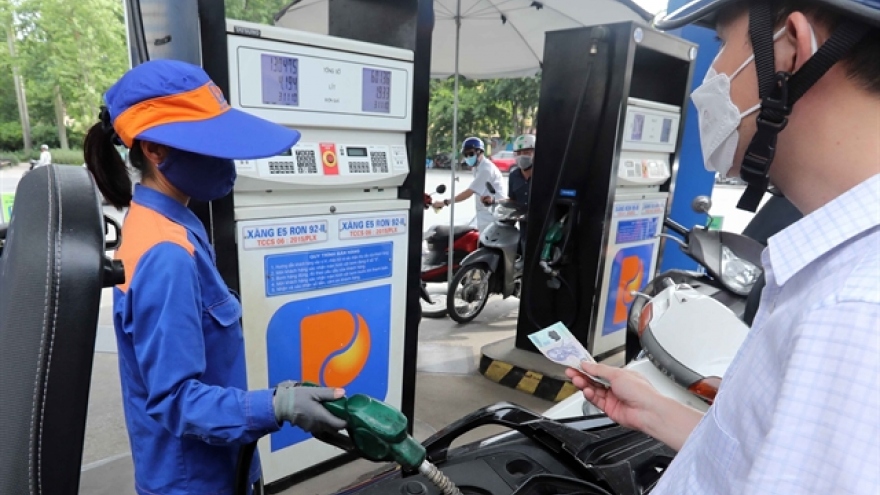Workshop on carbon tax to mitigate CBAM for exported goods held
A consultation workshop titled “The Recommendations for a Carbon Tax to Mitigate the Impact of the EU’s Carbon Border Adjustment Mechanism (CBAM) on Vietnam” was held in Hanoi on August 30.

In the opening speech, Mai Kim Lien, Deputy Director of the Department of Climate Change under the Ministry of Natural Resources and Environment, said that climate change had become the biggest challenge for humanity, and has been affecting all aspects of economics, politics, diplomacy, and global security.
In addition to proactive adaptation, each country must be responsible for reducing greenhouse gas emissions according to its nationally determined contributions (NDC) to implement the Paris Agreement on climate change from 2021.
In order to reduce greenhouse gas emissions, in addition to applying advanced technology, many countries apply carbon pricing tools.
"Commonly-applied carbon pricing tools are carbon taxes, greenhouse gas emission quota trading systems, and carbon credit mechanisms," emphasised Lien.
In parallel with the roadmap to establish and operate the domestic carbon market, the Prime Minister has also assigned relevant ministries and branches to research and propose regulations and roadmaps for applying carbon tax in Vietnam, said Lien.
At the workshop, experts discussed and proposed a carbon tax design and roadmap to mitigate the impact of CBAM on the country.
Attorney Nguyen Anh Minh, NHQuang and Associates Law Office, said that carbon tax was a tool used in many countries around the world, which encourages businesses and people to reduce greenhouse gas emissions into the atmosphere.
The taxable object is direct emissions or the carbon content of fossil fuels. The regulation applies during the production, import or consumption process.
Regarding tax rates, experts analysed that a low rate might not motivate emission reductions, while a high rate could have negative effects on economic stability in the short term.
Therefore, the principle for determination will be based on ensuring cost compensation, taking into account Vietnam's socio-economic development policy.
This aims to ensure fairness, transparency and equality in the rights and obligations of citizens.
In addition, non-taxable entities may include remote areas, vulnerable groups or industries crucial to the economy.
On the other hand, experts also propose integrating carbon tax into environmental protection tax as both apply to goods that have a negative impact on the environment.
In fact, certain products, such as coal and gasoline, are already subject to environmental protection taxes.
Therefore, the environmental protection tax can also be expanded to include greenhouse gas emissions arising from the production and use of taxable goods.
Therefore, it is important to ensure that a carbon tax (if introduced as part of an existing environmental protection levy) is directly linked to the greenhouse gas emissions of goods and other products should be included in the environmental protection tax to be consistent with CBAM such as cement and steel.
Sharing experiences in implementing carbon taxes, Axel Michaelowa, Senior Founding Partner of Perspectives Climate Group, said that carbon tax sets a fixed carbon price in US dollar/tCO2e.
In Colombia, the carbon tax has been implemented since 2016 on domestically produced or imported fossil fuels.
Coal alone will be fully taxed from 2028. Tax is determined based on the carbon content of each fuel type. The tax rate is calculated at US$4.4/tCO2e.
The tax covers 23% of Colombia's total greenhouse gas emissions.
Colombia's carbon tax revenue is US$527 million from January 2017 to April this year, of which 80% of the revenue from the carbon tax is used to fund environmental protection measures and 20% goes to the Colombia Peace Fund.
CBAM has been approved and officially takes effect on May 17 this year. CBAM will begin a three-year transition period from October 1 this year.
After this time, the CBAM mechanism will officially take effect from January 1, 2026 and be fully operational in 2034.
Currently, the EU has published a draft regulation implementing CBAM, which includes details of the reporting obligations and necessary information about CBAM items from importers.
During the transition period, importers will be obliged to report appropriate emissions from imported goods covered by the regulation.

